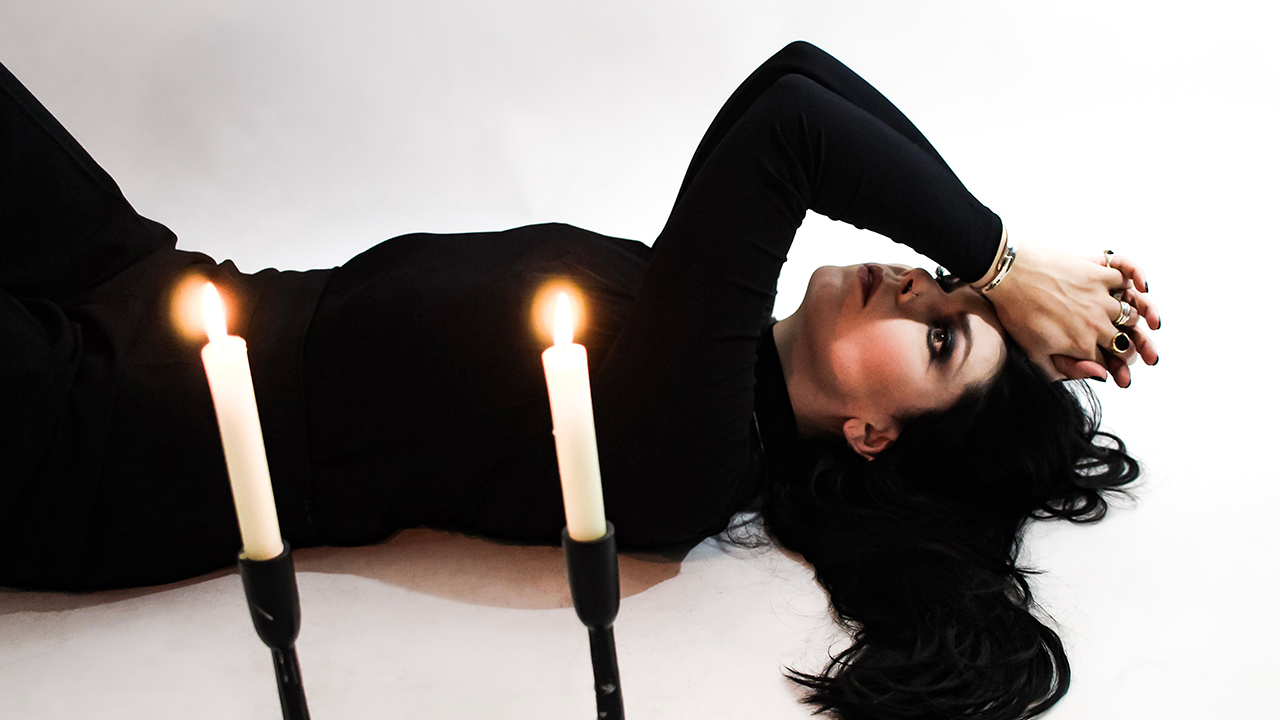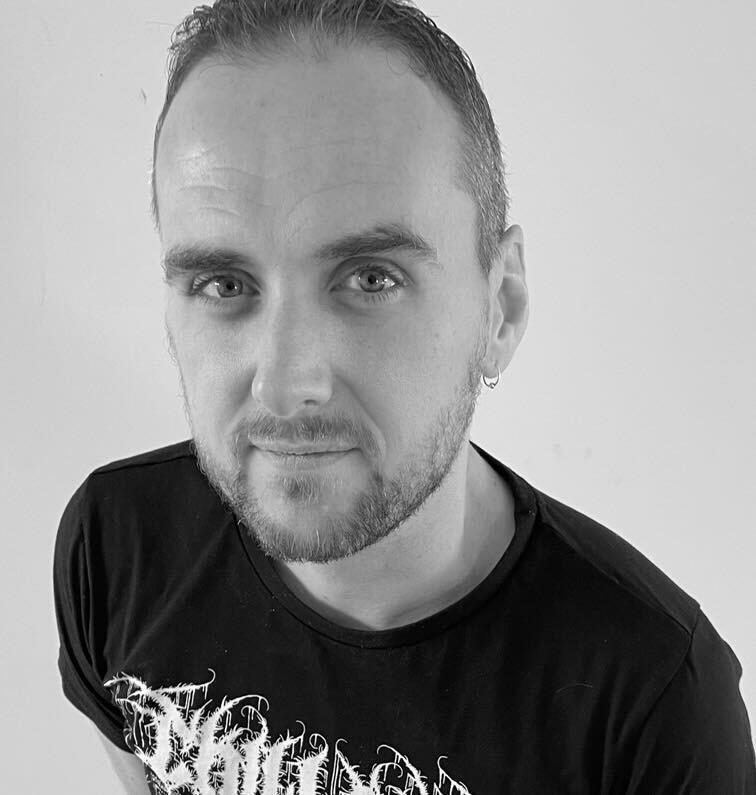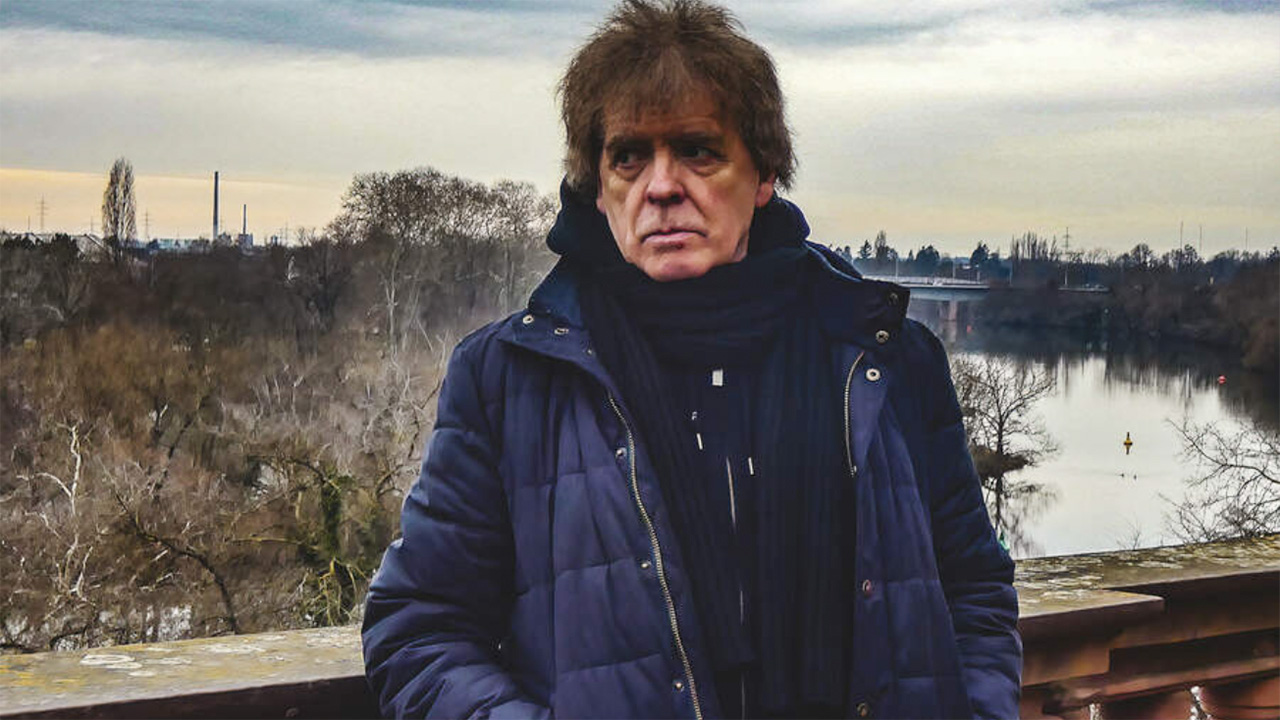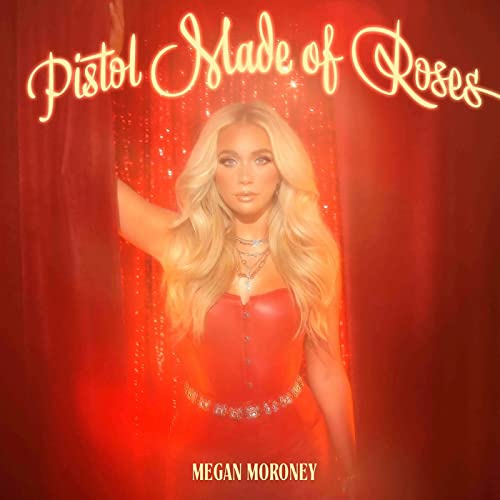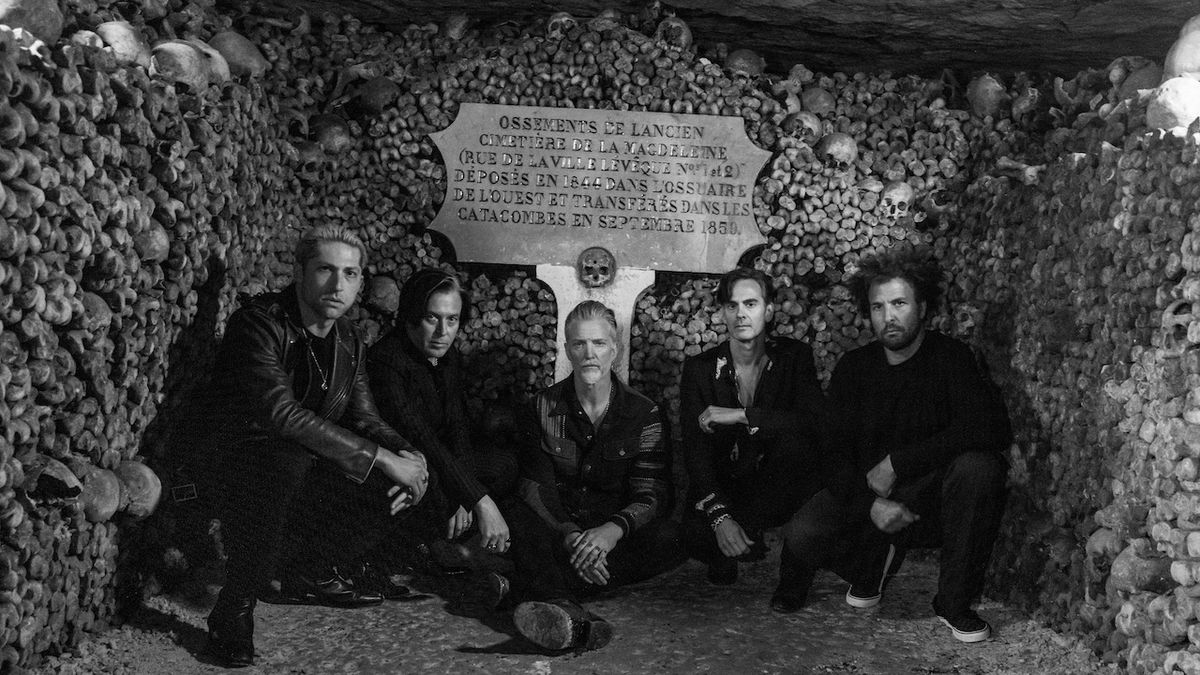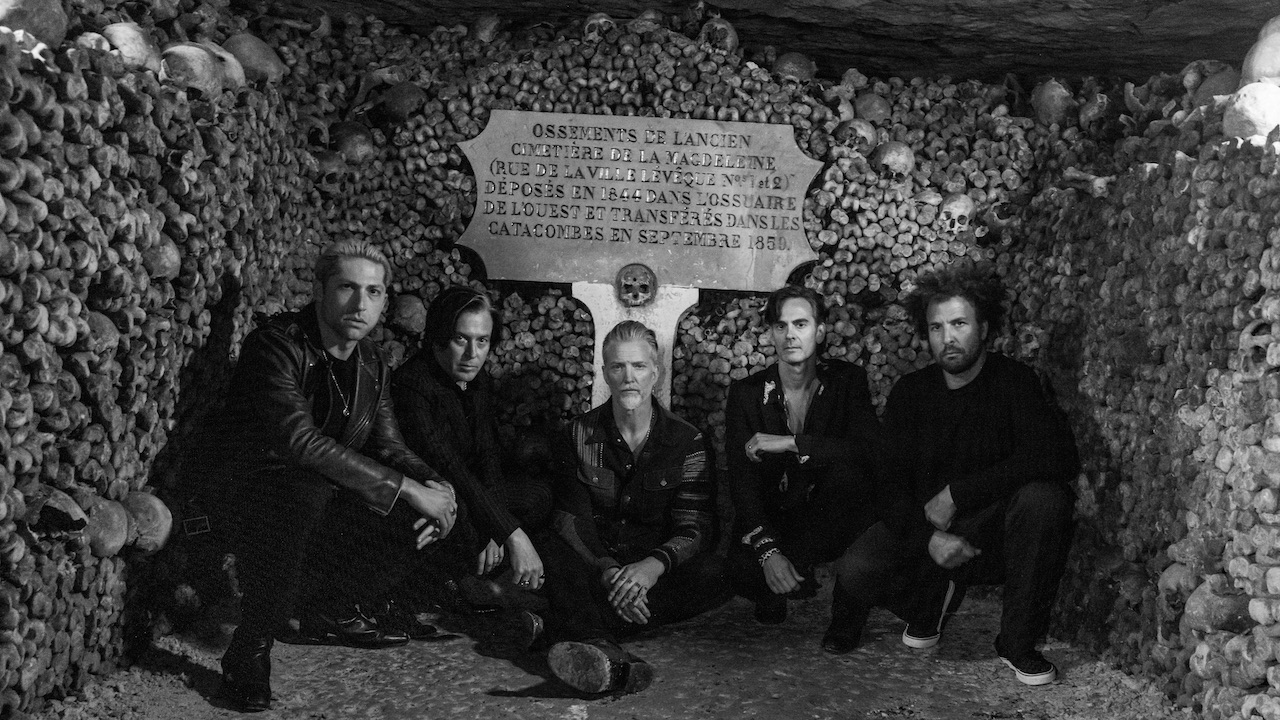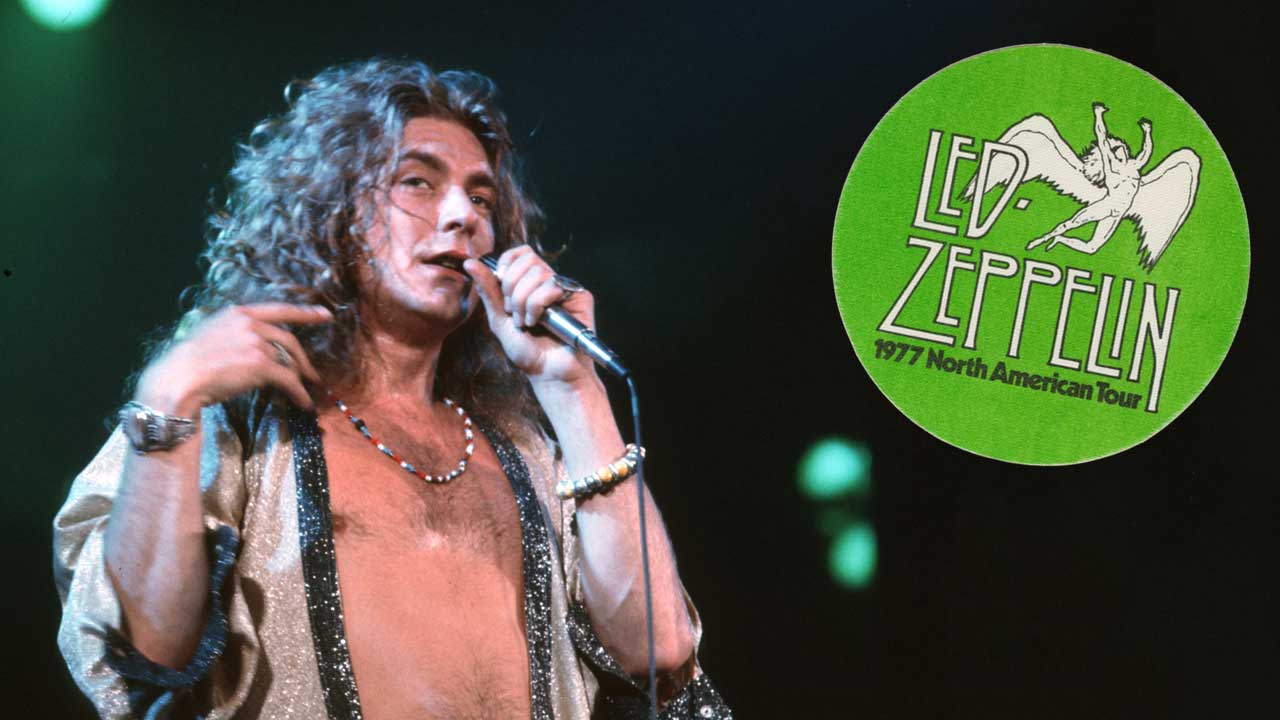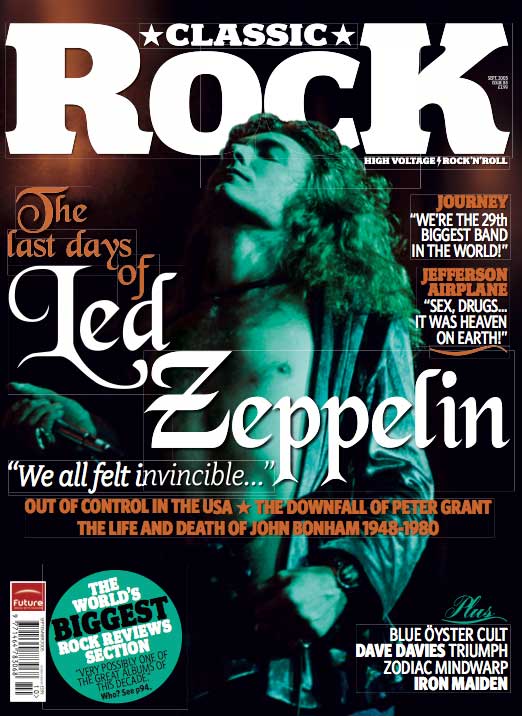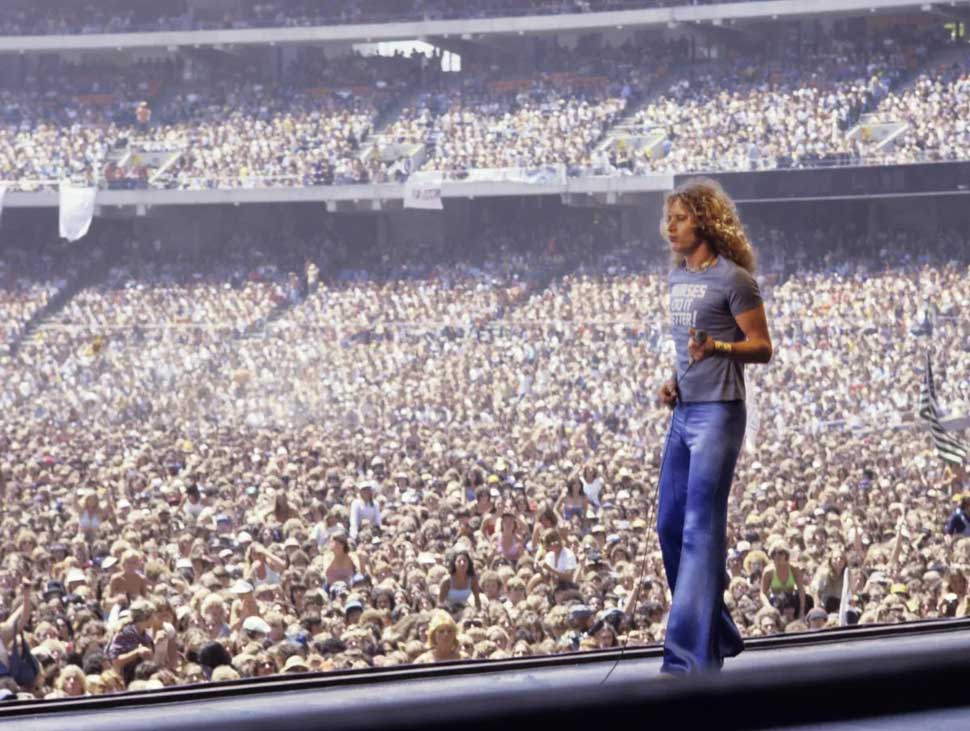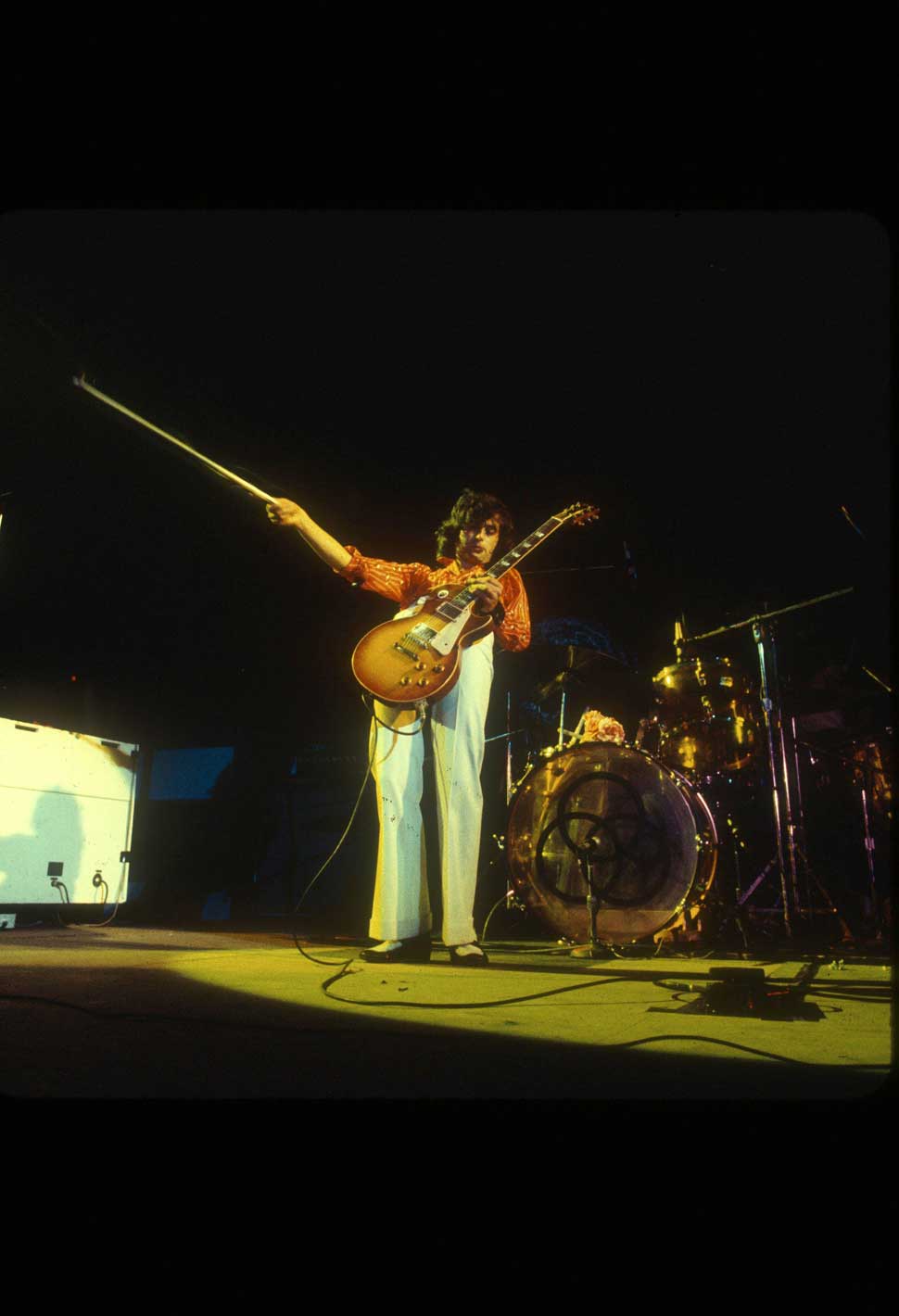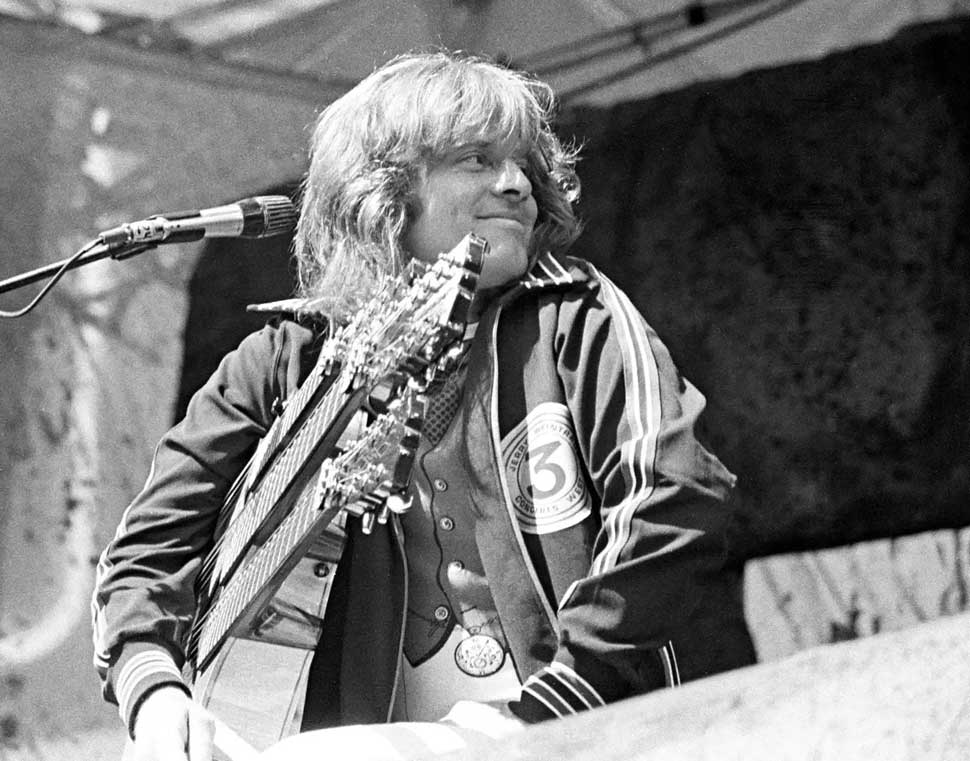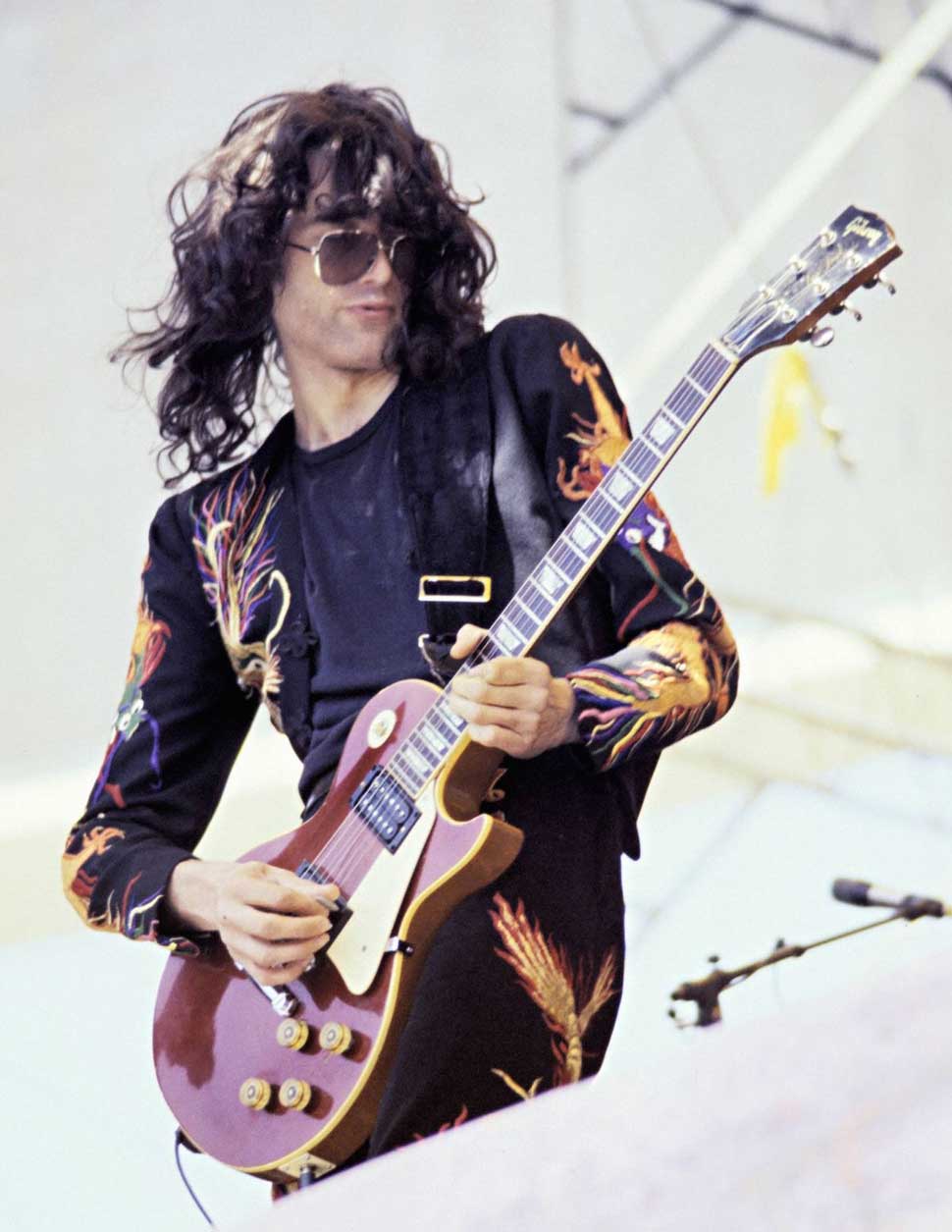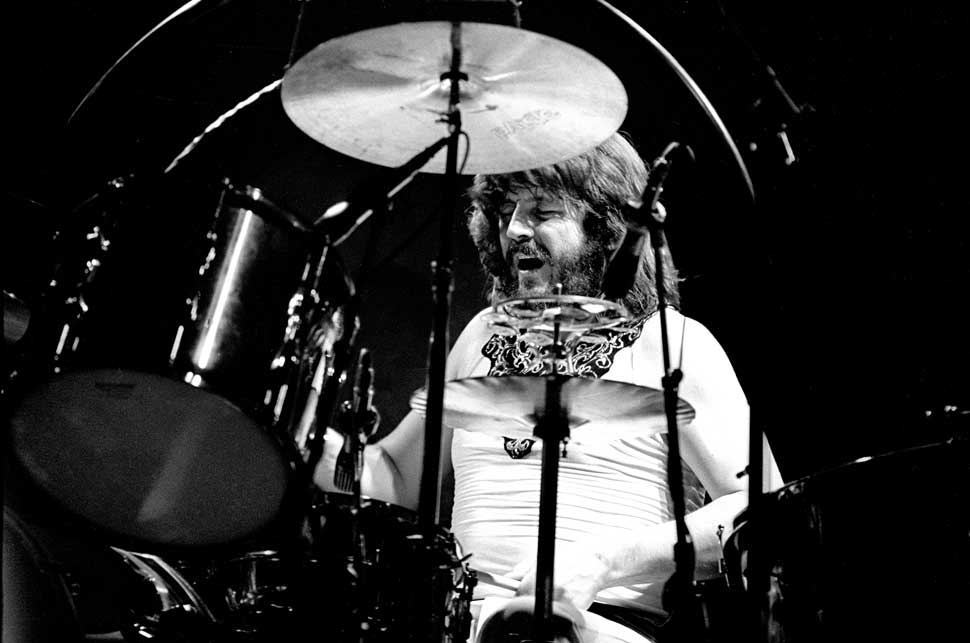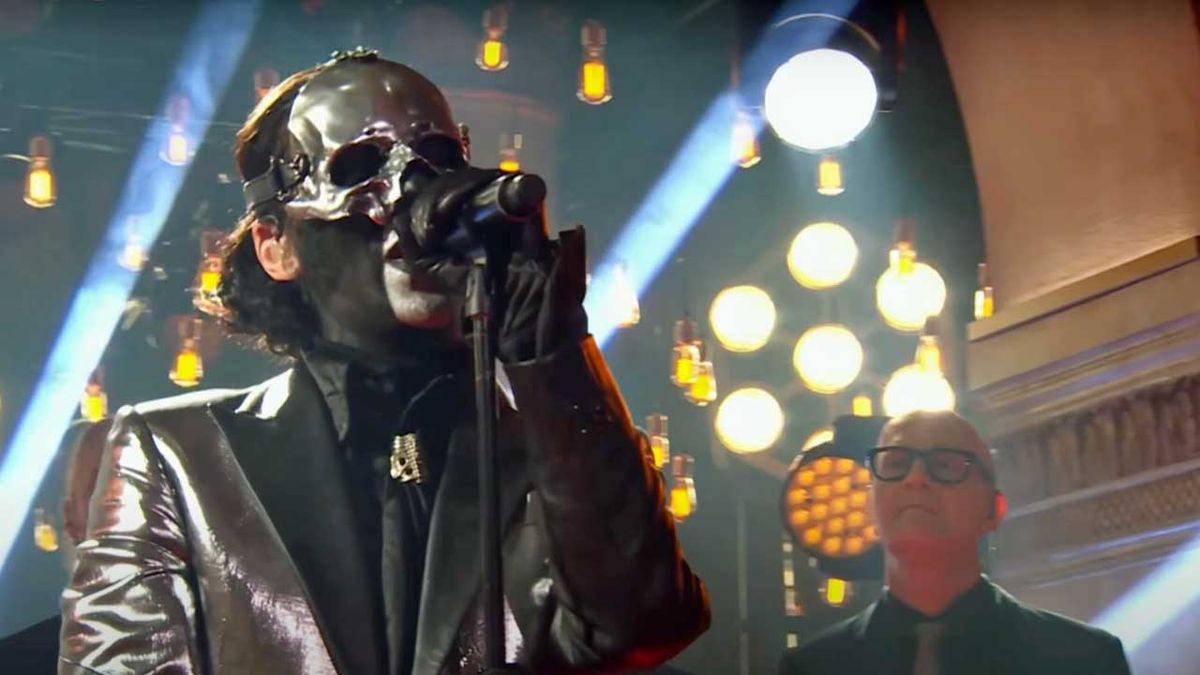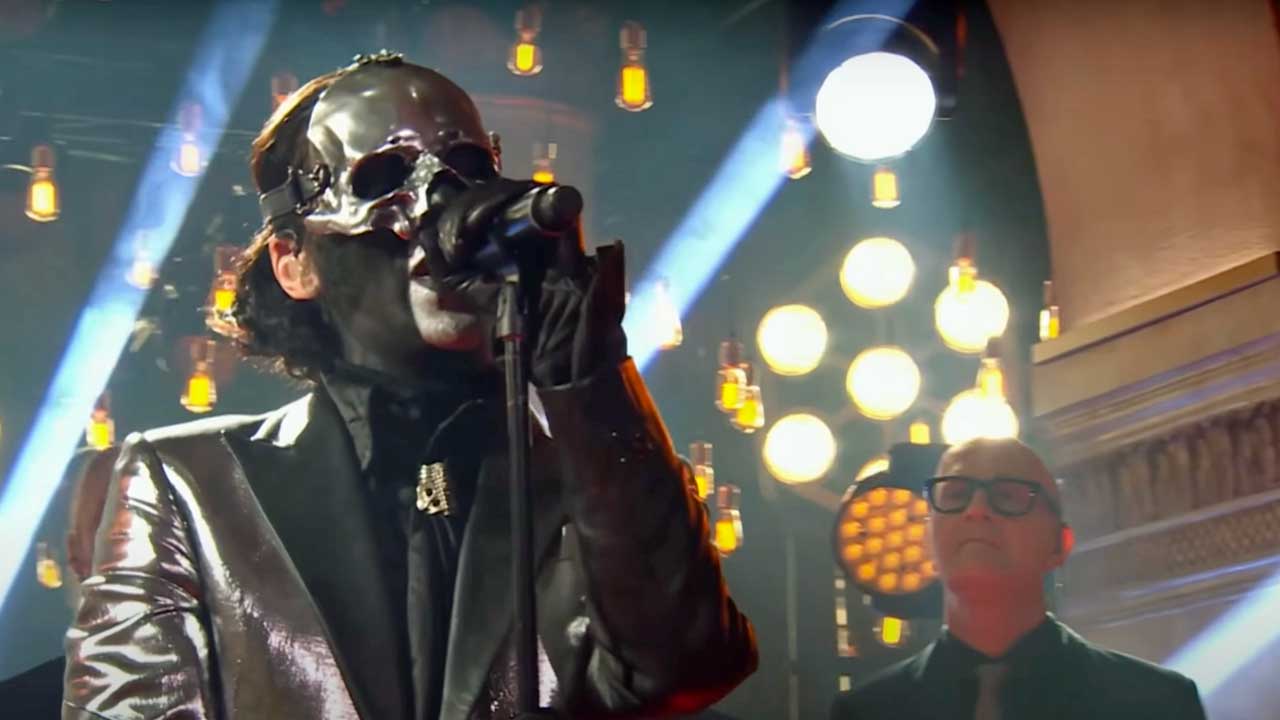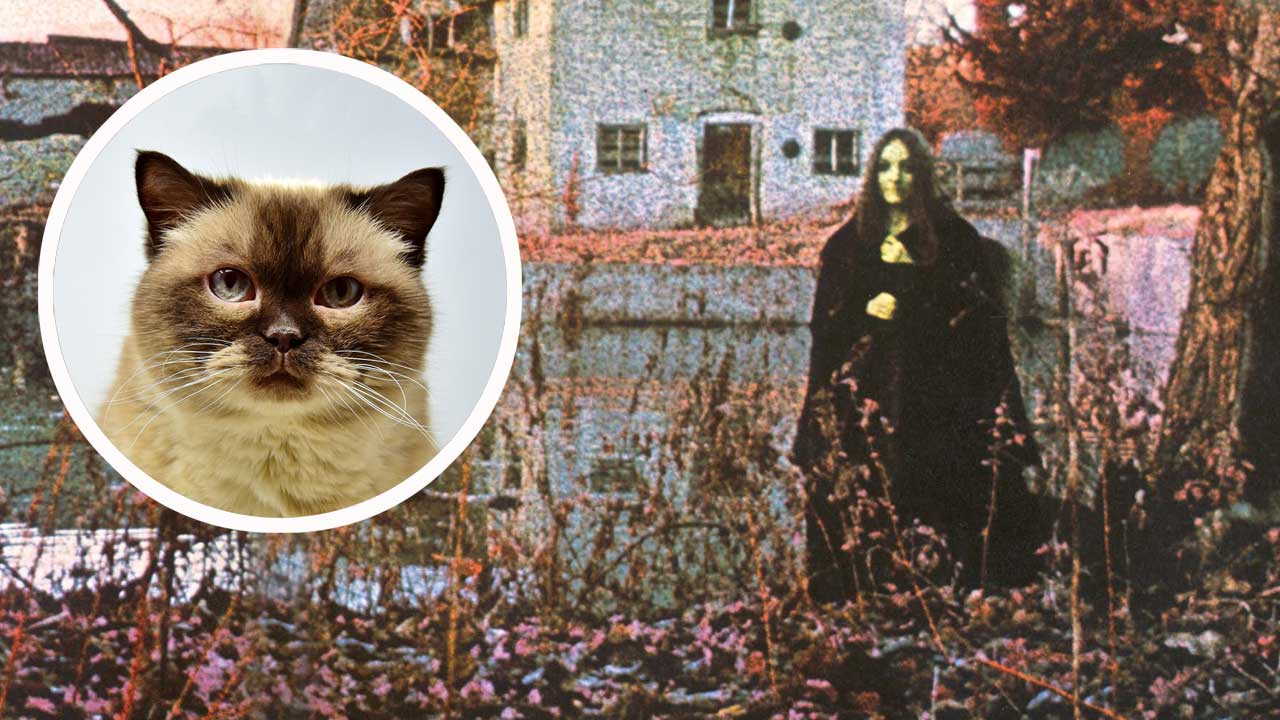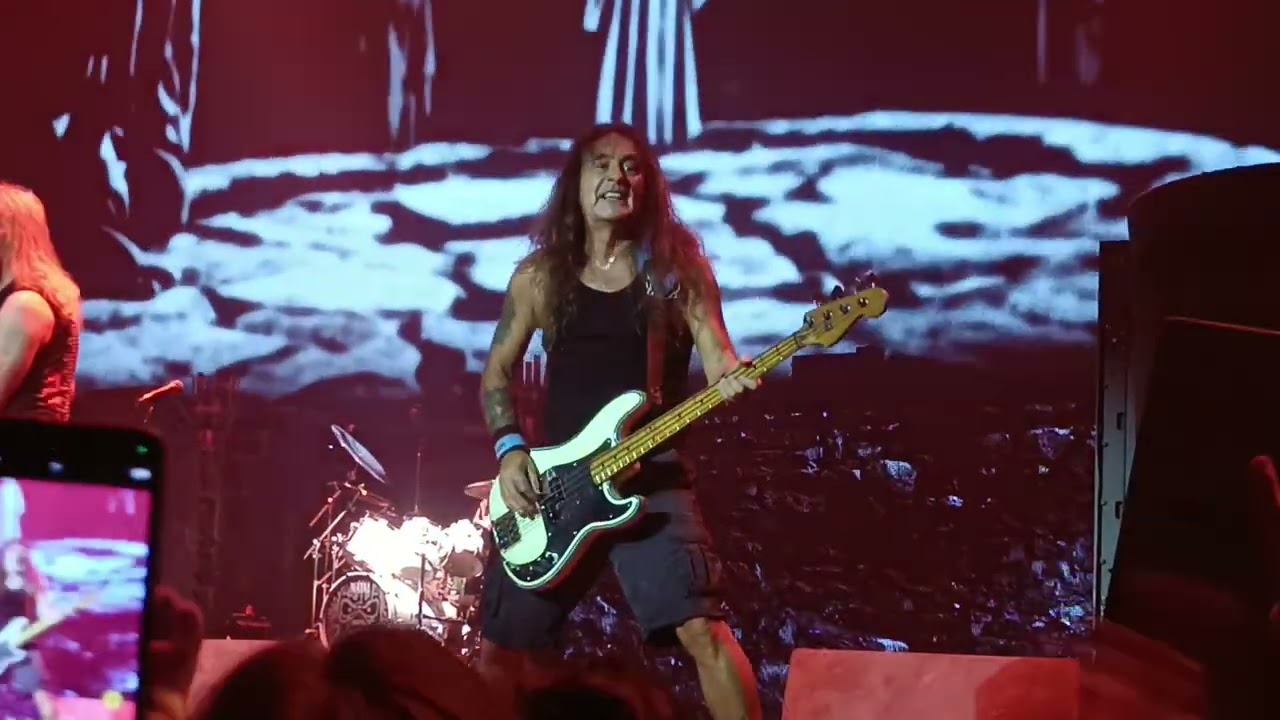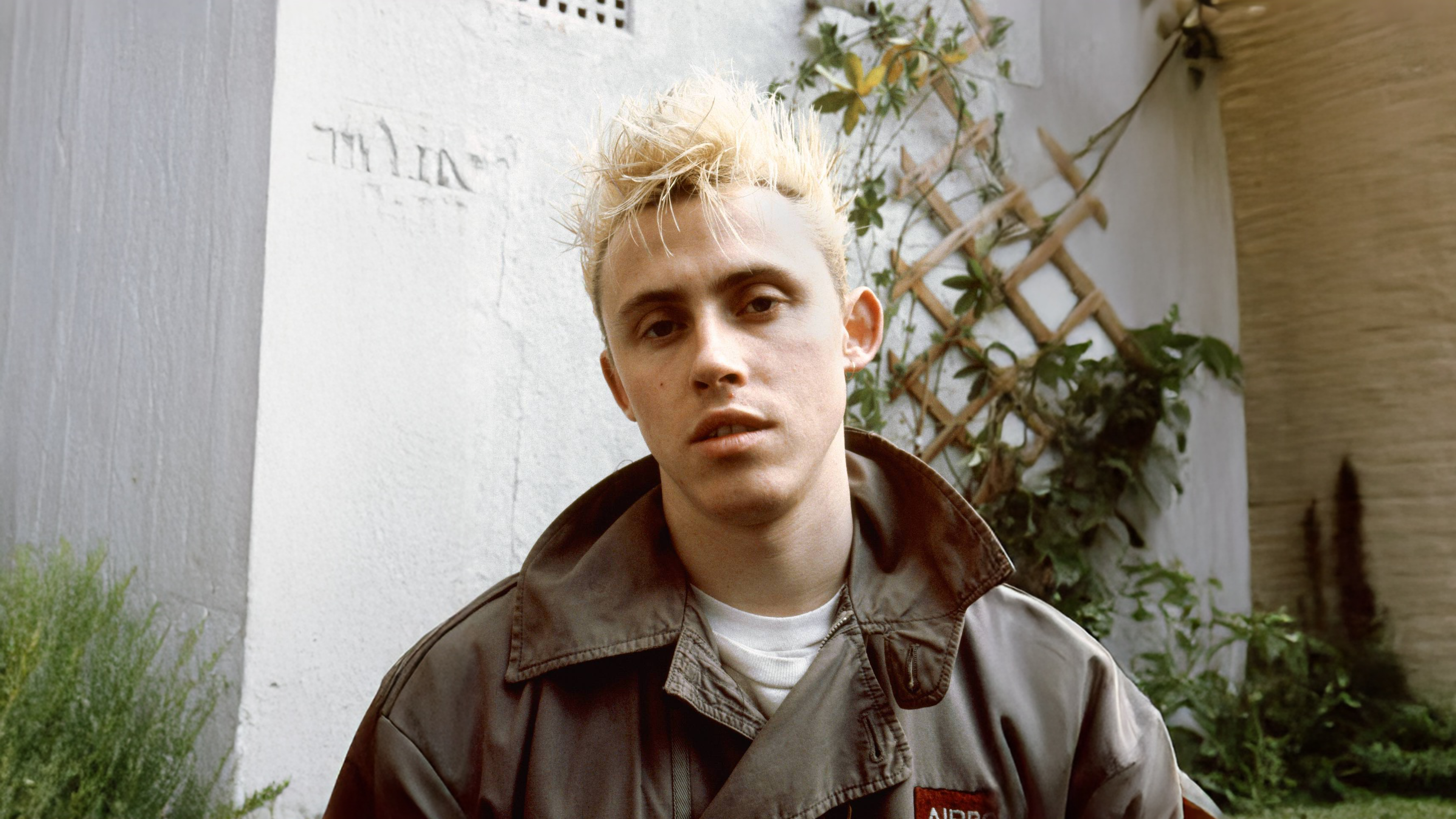
“I’m actually dead,” says Kirk Brandon. “I’m speaking to you from inside my coffin.”
In May 2023, Brandon was in Nottingham fronting one of his two ground-breaking bands – in this case, Spear Of Destiny, not Theatre Of Hate – when, he says, “I just had a little heart attack.”
He ended up in Northampton General Hospital for three and a half weeks. “But that’s easy,” he says. “I’ve done a four-month stretch before. That was hard.”
The ‘four-month stretch’ was the result of endocarditis (defined by the NHS as “a rare and potentially fatal infection of the inner lining of the heart”). While he was in, he says, they replaced his aortic valve with a titanium one.
He smiles: “It was a lotta laughs, y’know.”
And how is he now? “Honestly,” he says, “I’m fine. I’ll live forever.”
Kirk Brandon was – and still is – the beating titanium heart of post-punk bands Theatre Of Hate and Spear Of Destiny: singer, guitarist and chief songwriter. Inspired by punk, but looking for something more than “three chords and sloganeering”, he came up with something completely unique – although people didn’t always notice.
“When we first started,” he says, “people said, ‘Look at these young pretty boys. Aren’t they lovely? Let’s take them home’ and they pushed that aspect of it – or the media did. ‘Oh, look, they’re fluffy and harmless – wonderful!’ But that wasn’t really what we were doing.”
No shit. A stew of tribal beats, twanging Morricone guitars and searing saxophone, topped by Brandon’s withering, dramatic singing, Theatre Of Hate sounded like a band playing a dive bar on the Eastern Front in a Brecht play.
They did not sound fluffy, they sounded terrifying.
“I looked fluffy,” he says. “I didn’t always look like this. This is after the car crash.”
He was a good-looking guy, Kirk, still is. Big-eyed, blonde-haired, with cheekbones and a pout that could’ve put him on a million teenage walls, he could have been a pop star – and he was, briefly – if it wasn’t for the racket he made.
“Compared to the music of today,” he admits, “Theatre Of Hate is definitely avant garde.”
In June, Theatre Of Hate play the Forever Now festival at Milton Keynes Bowl, alongside Kraftwerk, Death Cult, PiL, The Damned, Johnny Marr, The The, Psychedelic Furs, Peter Murphy and a load more unique, eccentric and visionary musical weirdos borne out of that same period – an extraordinary explosion of music that becomes almost harder to explain the further away from it we get.
In 2025, it’s almost completely impossible to imagine any teenager or 20-something making music like Theatre Of Hate or Spear Of Destiny.
Where did that music come from?
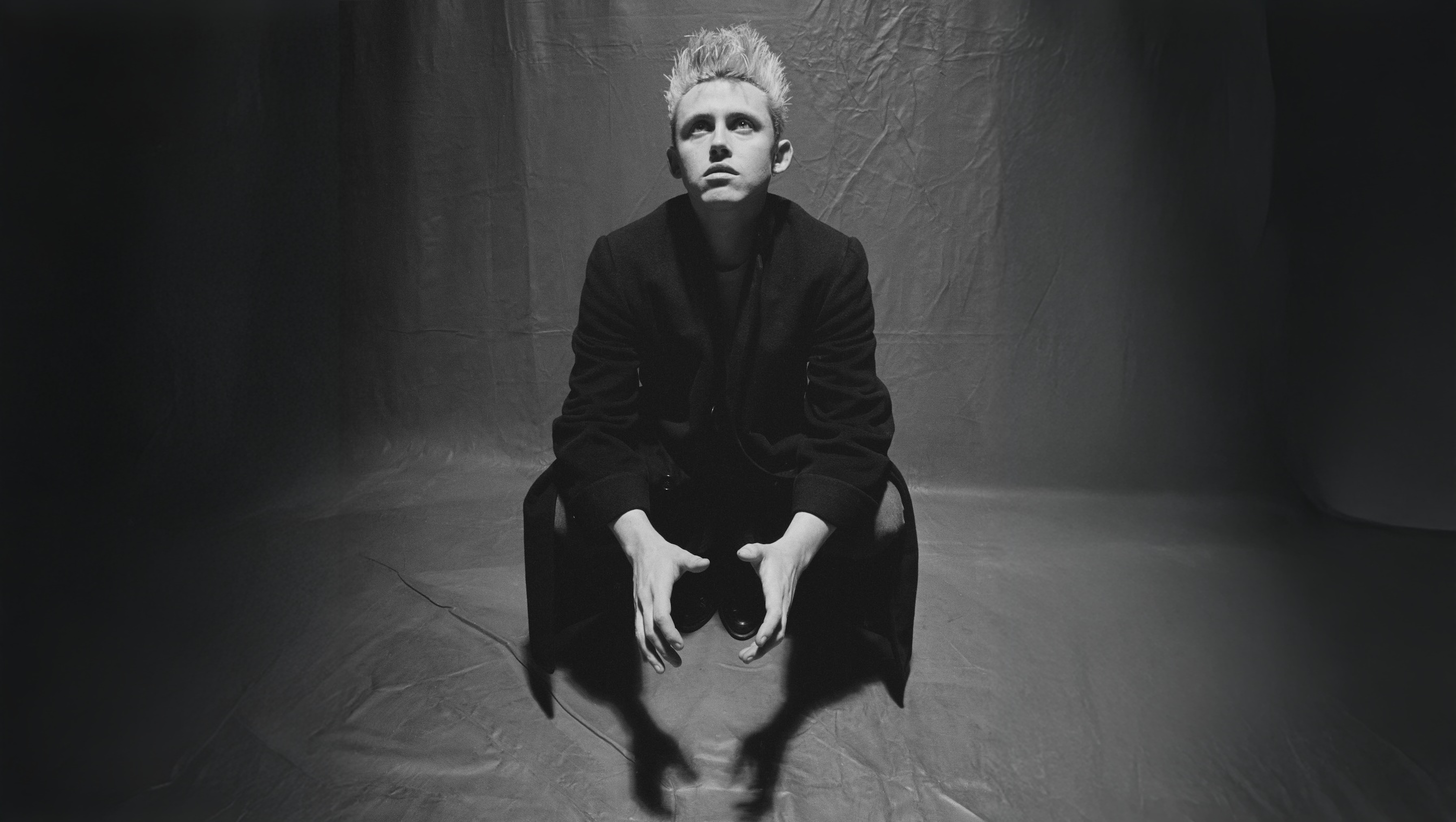
In some ways, Kirk Brandon had a traditional introduction to music. At the age of 12, he saw John Mayall and the Bluesbreakers – the 1968 line-up, with future Rolling Stone Mick Taylor on guitar. A lot of people who saw the Bluesbreakers went on to play blues – to this day, a legion of boring white guys with Strats are playing homage to that kind of music. Not Kirk Brandon.
Maybe it was the influence of the stuff teenage Kirk was exposed to, like Van der Graaff Generator (“strange stuff, absolutely incredible, but weird as hell”), another band with a high-pitched and theatrical singer.
And then there was his dad. A working-class bloke from Westminster who’d fought in World War II, Brandon Sr. was in love with opera and would sing around the house. (Could he have been a performer? “I don’t think so,” says Kirk. “He was never going to be an Enrico Caruso, you know, discovered on the streets of Naples, and turned into a superstar. Instead, they put a uniform on him and sent him out there to kill people.”)
Did opera influence his own singing style? “I don’t really think so. It must be in there but I just made it up as I went along. No one told me what to do, I just did it. It’s self-exploration.”
Brandon taught himself to play guitar, “making up chords” until it sounded like music. “Clueless, really, but it kind of worked in a funny, weird, kind of way,” he says. “Again, self-exploratory. I used to think that’s what music was – that it was meant to be exploratory. It wasn’t about learning somebody’s back catalogue and writing your own songs based around that. Then along came punk rock.”
Like many of his generation, he thought punk was exciting and inspirational, but it quickly seemed formulaic: “Three chords, four chords, and grown men shouting slogans, based around V-C [verse-chorus], V-C, V-C or V-C, V-C, C-out.
“To me, that’s boring,” he says. “I don’t want to do that. There’s a ton of minor chords and discord in Theatre Of Hate. Which is interesting, I think. Even today, it’s interesting.”
Theatre Of Hate toured with The Clash in 1981. The Clash themselves had just released the sprawling triple album Sandinista!, an album full of dub, funk, jazz and the occasional bit of rock’n’roll. It was a time for experimentation.
“People expected you to do something different,” says Kirk. “I think people were just curious. ‘What is this?’ Y’know, we had a saxophone, but it wasn’t used in the traditional way – it wasn’t playing hokey old jazz riffs and scales, y’know? It was strange. But at the time, there was room for self-exploration. It hadn’t become completely and utterly corporate.”
Theatre of Hate | Do You Believe in the Westworld? | 1982 – YouTube 
When Theatre Of Hate burned out prematurely, after one Mick Jones-produced album, Brandon and bassist Stan Stammers went straight into Spear Of Destiny. Agumented again by sax and keyboards, SoD developed into something slightly more commercial. With soulful backing vocals, elegiac pianos, and barn-burning sax, they were intense, politically-minded and anthemic – like the E-Street Band fronted by John Lydon.
It was a peak time for alternative music, just as it was Peak Monoculture. Now That’s What I Call Music, Top Of The Pops, Radio 1, the charts – that was how most people got their music. And then there was the underground – several of them, really – backed by independent record labels, the music press, DJ John Peel, left-field music shows like The Tube: post-punk, goth, psychobilly, thrash metal, skate punk, indie and a million other scenes bubbled away.
“You always felt you were at odds with the mainstream,” he says, “and in the background was always the shadow of George Orwell [“The papers talk about Orwell, almost every day,” goes Spear song World Service] and the wartime function of the Ministry of Propaganda.
“I felt that we were outsiders, to be honest. Ultimately, there was never going to be room in the mainstream for someone like us. So if you got a brief window of going on The Tube or even Top of the Pops, as we did, you took it because it wasn’t going to come again.”
Spear Of Destiny – Live The Tube 1984 – HD – YouTube 
Around that same time, in Soho, a scene was developing around the Blitz club, where DJ Rusty Egan was anticipating a Krautrock-and-Bowie-inspired future of frictionless beats and synthetic bass, and a load of artists – Visage, Ultravox, Gary Numan et al – were in a technological arms-race to get the latest keyboard sounds and beats into the charts.
Brandon was around that scene but not of it. In fact, he went in exactly the opposite direction: Something much more organic and analogue, with saxophones, pianos, and guitars and live drummers. He wanted friction.
“That’s the either the beauty – or the ugliness – of me,” he says. “I went in the opposite direction to whatever would help.
“I went to the Blitz club quite a lot, and Hell, and all them other ones. It was interesting. It was genuinely funny and fun and silly. Some people inside it took themselves incredibly seriously. Incredibly.
“I was there the night David Bowie turned up,” he says. “He went straight to see Rusty Egan. Bowie was wearing a suit with flares, a 1970s suit that he probably bought in the 70s. It was like an anti-Blitz fashion statement, this awful flared suit.”
Rock’n’roll is like Italian operetta. Everybody dies and loses. Women get raped. They sing beautifully, but it all goes wrong. It doesn’t all come wrapped in cellophane with ribbons.
Kirk Brandon
If anything, Spear Of Destiny felt like an alternative E-Street Band: the drama, the social commentary, the musicality, the pianos and the sax. “I love Nebraska,” he says. “To me, that’s his greatest album. I would say that, wouldn’t I? It’s like [Tom Waits’] Swordfishtrombones: it’s all sort of ‘left side of the pitch’. More obscure, uncommercialised.
“But I was very aware of that Phil Spector-type way of doing things, that Springsteen used a lot. I was aware of that – and the Roy Orbison way – and I suppose sometimes in the arrangements, you would flip through ways of doing things and think, ‘That’s not a million miles from the E-Street band.’
“Somewhere in all of this, there’s rock’n’roll,” he says. “And that’s hard to divest yourself of. Eddie, Elvis, Gene, Fats – rock’n’roll is there, y’know?
I’m not gonna say it’s religion but it’s a religion, and we kind of buy into it, don’t we? We buy into the myth, the mythos.
“A lot of that stuff is like Italian operetta. And like a lot of opera, everybody dies and loses. Women get raped. That’s Italian opera. They sing beautifully, but it all goes wrong. So that’s in there too. It doesn’t all come wrapped in cellophane with ribbons.”
His greatest album, 1984’s One Eyed Jacks, leaned into that drama. Full of ghostly pianos, crisp guitars and soaring sax, Jacks wore its musicality on its sleeve, but still sounded powerful and authentic.
From the opening seconds of Rainmaker to closer These Days Are Gone, Kirk’s voice – a savage howl one minute, ridiculously soft and tender the next – provides a raw counterpoint to the band’s slick musicianship, piccolos and all. Lyrics like Playground Of The Rich, meanwhile, are more relevant now than they’ve ever been.
The money shots were Prisoner Of Love, a funky attempt at a crossover hit which grated at the time but makes more sense now, and Liberator – a raucous indie disco floor filler.
(What’s Liberator about? I ask him. Who’s being liberated? “You know,” he says. “I’ve forgotten. I used to have a conscience, but I’m better now. I can’t even remember.” Is it about freeing yourself from the tyranny of the mainstream? “Yeah,” he says. “That’ll do.”)
While the Blitz Kids ruled the charts, Spear of Destiny had more in common with another scene at the time. By 1984, the ‘Big Music’ was everywhere: Big Country’s The Crossing took Lizzy’s Róisín Dubh deep into the Scottish glens, Under A Blood Red Sky turned U2 into post-punk Springsteens, and – while The Clash were being overpowered by funk – The Alarm grasped the rebel rock baton and ran with it on their debut, Deliverance.
Spear Of Destiny were London’s answer to all this Celtic chestbeating. “The Barra boys from London, is that it?” says Kirk. “I don’t know. They were doing their own thing. I love Big Country. They had it right from day one. Stuart Adamson was a fantastic songwriter.”
Big Country’s career was sabotaged by record company politics and unsympathetic producers – Spear of Destiny had similar woes. Brandon says he didn’t like any of the band’s producers (“apart from Alan Shacklock and Zeus B. Held”), while “record companies just want the flagship hit single,” he says. “They want pretty-looking stars and they want hit singles.” In 1987, he gave them one: Never Take Me Alive went to no.14 in the UK singles charts.
Their manager Terry Razor (“a Scottish gangster,” says Kirk) and the record company couldn’t agree on what the single should be, so they turned to Kirk. “I said, Never Take Me Alive. They all looked at me like, ‘That’s suicide.’ I thought, ‘I’d rather it was suicide and a good song’. Luckily for everybody, it was a hit.”
Did his audience see this success as selling-out? “I don’t think Never Take Me Alive is a ‘sell out song,’” he says. “I tried selling out, failed miserably – but I’m open to offers.
“Never Take Me Alive was a good song. I nicked all this stuff from Beethoven’s Mass For The Dead and [Ants guitarist] Marco Pirroni came and played guitar on it.” Marco added one chord to it, he says, but it made all the difference.
Adam and The Ants and Theatre Of Hate had come up around the same time and had a similar MO: the outlaw chic, the twanging guitars, the tribal drums. The Blitz kids were trying to get people dancing and Theatre Of Hate…
“We were making dance music for people in asylums,” he says. “And we succeeded.”
Spear Of Destiny are on tour now. Theatre Of Hate are on tour from June and appear at the Forever Now festival at Milton Keynes Bowl on 22 June. For more info and tickets visit Kirk Brandon’s website or Forever Now

